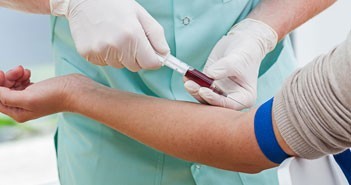The smart way to test for cholesterol

Researchers present home tool for blood cholesterol monitoring, using standard test strips and a smartphone.
In a collaboration between the Sibley School of Mechanical and Aerospace Engineering and the Department of Biomedical Engineering at Cornell University (NY, USA), a group of researchers has recently published work on a new home tool for blood cholesterol monitoring.
The ‘smartCARD’ system, standing for ‘smartphone cholesterol application for rapid diagnostics’ allows cholesterol levels to be measured from a blood sample on a standard test strip by taking a photo on a standard smartphone. The system consists of an accessory that attaches to the smartphone allowing uniform and repeatable photos to be taken, and an ‘app’ that allows analysis of the photo (analyzing levels such as hue, saturation and luminosity of the test area) to quantify the cholesterol level.
The team describes how they optimized the system to improve both the accuracy and sensitivity of the colorimetric reaction imaging process, and then describe the algorithm they have devised, which allows correlation of the various parameters and cholesterol level.
The system was tested in a series of human trials, comparing the smartCARD system to the CardioCheck PA lipid point-of-care device. From nine readings given, the researchers found a maximum difference between the systems of 5.5% in one reading, with all other results under 3%. In addition, their smartCARD system was able to identify when erroneous readings were given.
Additionally, the system was optimized in terms of sensitivity and reproducibility across different smartphones. The team envisages that since this will allow analysis of cholesterol levels at home, this will “allow cholesterol monitoring to become more accurate and widespread greatly improving preventive care for cardiovascular disease.”
Source: Oncescu V, Mancuso M, Erickson D. Cholesterol testing on a smartphone. Lab Chip doi: 10.1039/C3LC51194D (2013) (Epub ahead of print).





